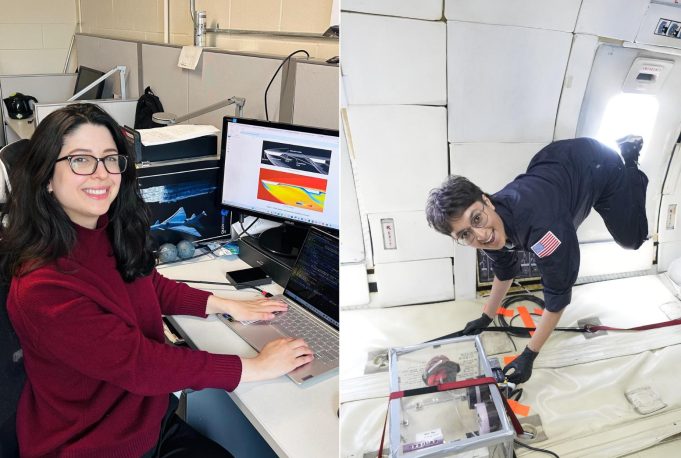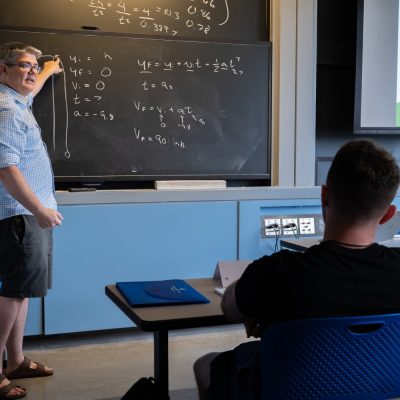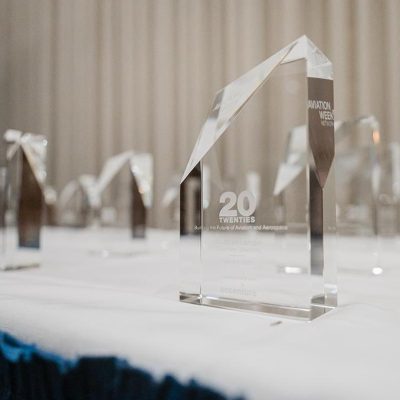
Myrella Cabral and Palak Patel awarded 2025 Amelia Earhart Fellowships
PhD students Myrella Cabral (HRL) and Palak Patel (necstlab) have been named 2025 Amelia Earhart Fellows by Zonta International. Established in 1938 to honor pioneering aviator and Zonta member Amelia Earhart, the $10,000 fellowship is awarded each year to up to 30 women pursuing doctoral studies in aerospace engineering or space sciences. MIT Course 8 PhD student Fatima Zaidouni was also named to the 2025 cohort.
About the AeroAstro awardees:
Myrella Cabral
Myrella Cabral is a PhD student in the Department of Aeronautics and Astronautics at MIT, where she researches aerothermoelastic phenomena in hypersonic flow. She works with Dr. Wesley Harris and Dr. Earl Dowell on advancing predictive models for fluid-thermal-structural interaction, critical to the safety and performance of high-speed aerospace vehicles. As part of her PhD work, Cabral participates in the NASA-hosted Aeroelastic Prediction Workshop, High-Speed Working Group, correlating her computational model with hypersonic wind tunnel measurements provided by the Air Force Research Laboratory and the University of New South Wales. She is also a member of the AIAA Hypersonic Technologies and Space Planes (HyTASP) Technical Committee.
Originally from northeastern Brazil, her curiosity and eagerness to learn have driven her to overcome the challenges of being a first-generation college student. Cabral holds a Master’s in Mechanical Engineering from the University of São Paulo, where she specialized in nonlinear supersonic flutter of composite panels, and a Bachelor’s in Civil Engineering from the Federal University of Pernambuco. During undergrad, she had her first research experience in the loads and aeroelasticity team of an aero design project, working from conceptualization and design to the construction of radio-controlled airplanes.
Her passion for the physics behind flight vehicles also motivated her to intern at Wisk Aero , where she contributed to different projects implemented aerodynamic corrections to the Doublet Lattice Method using Computational Fluid Dynamics (CFD) data, developed an optimization based load envelope for rotor performance, and assist ed in ground vibration testing of key aircraft components.
Outside of research, she serves as a dREF in MIT’s AeroAstro department, mentors an MIT undergraduate, supports Brazilian students applying to graduate programs abroad through BRASA, and volunteers as an English teacher for MIT service employees through the ESOL program.
Palak Patel
Palak is a PhD student in the Department of Mechanical Engineering at the Massachusetts Institute of Technology (MIT), conducting research in necstlab within the Department of Aeronautics and Astronautics under the mentorship of Prof. Brian Wardle. She is a NASA Space Technology Graduate Research Opportunities (NSTGRO) Fellow, mentored by Dr. Valerie Wiesner at NASA Langley Research Center, where she develops multifunctional materials for extreme environments critical to human deep space exploration. Her work focuses on creating ultra-lightweight composites integrating nanotubes into polymers to protect astronauts from ionizing radiation during long-duration missions. She also works on materials for lunar dust mitigation and ablative thermal protection systems. Her research includes manufacturing, mechanical testing, microgravity flight experiments, radiation beamline testing, and ISS flight experiments.
Palak earned her SM in mechanical engineering at MIT, where she investigated nanoengineered aerospace composites using synchrotron-based techniques to understand performance under extreme conditions. She completed her undergraduate degree in mechanical engineering at Pandit Deendayal Energy University in India, where she collaborated with the Indian Space Research Organisation on metal manufacturing research for space technologies.
Her passion for space extends beyond the lab. She participates in NASA challenges related to in-situ resource utilization, mission design, and analog missions. She has worked on concepts for lunar/Martian water extraction, metal extraction from regolith, brick manufacturing for shielding, and hybrid Moon-Mars mission planning. She also served as an analog astronaut in a student-led mission in Switzerland.
Outside of research, Palak is committed to safety, mentorship, and outreach. She is a mentor and safety officer for MIT’s MakerWorkshop, an Environmental Health and Safety officer, a graduate residential advisor, and leads STEM outreach. After her PhD, she plans to advance human spaceflight technologies and support human exploration beyond Earth. In her free time, she enjoys soccer, painting, running, and the outdoors.

